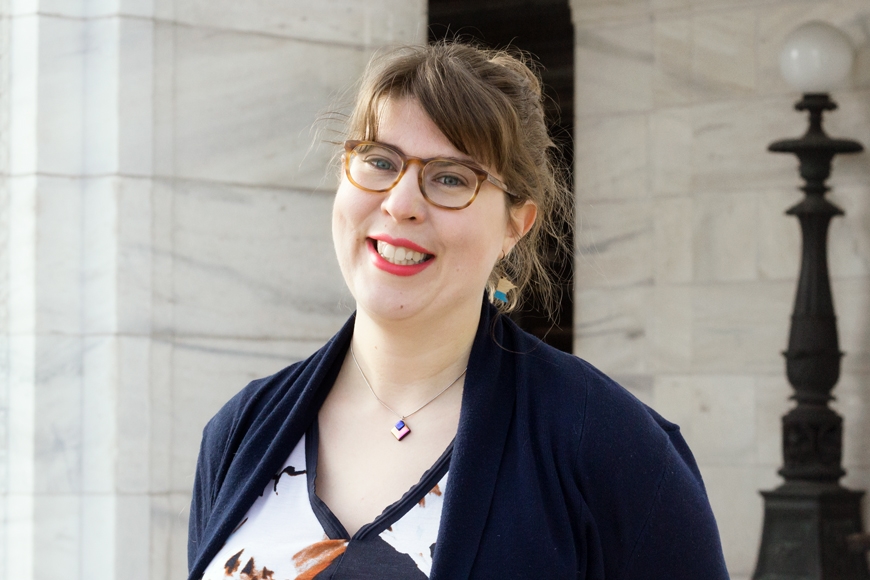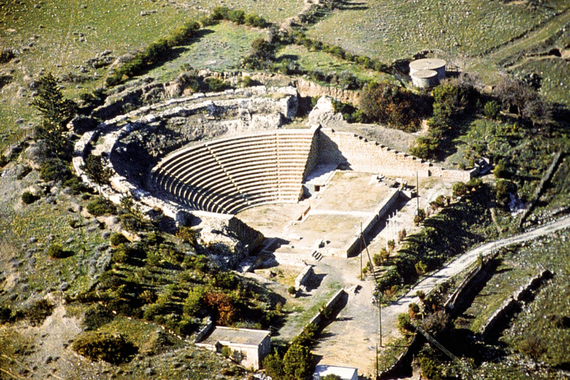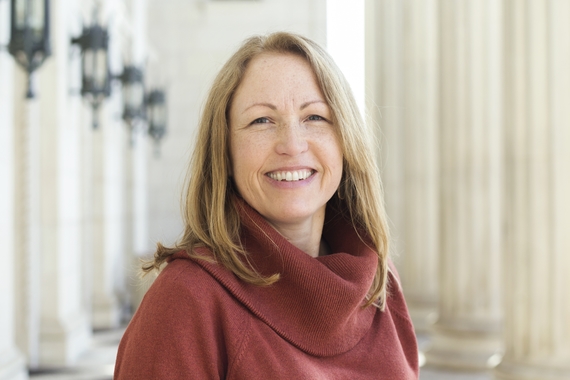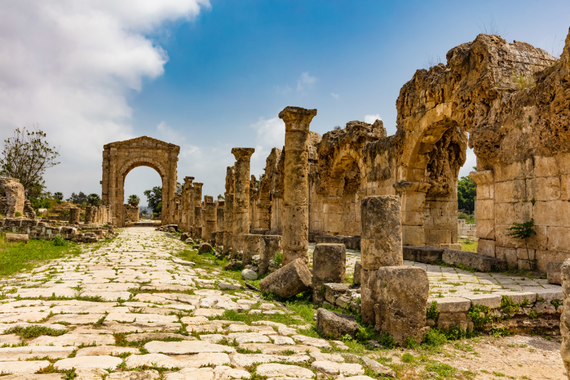What is a Latin Degree?
CNES alumna Claudia Hochstein was a contestant on the ever popular Jeopardy! earlier this year. Hochstein graduated with a dual degree in environmental science, policy, and management from the College of Food, Agricultural and Natural Resource Sciences (CFANS) and Latin from the College of Liberal Arts (CLA). Even more impressively, and, as you might expect from a Latin major, she graduated summa cum laude.
Hochstein, an avid Jeopardy! fan, has been applying to appear on the show since she was 13 years old. Finally, this year her name was selected at random to get a chance to audition. With her charm and vast knowledge of science as well as the ancient word, Hochstein grabbed a spot as a contestant. Unfortunately, the questions she faced didn’t draw on her specialties. “Not a single category related to the Bible or ancient history, or mythology, or literally anything came up in my game. My questions were about comic books and Salt Lake City,” explained Hochstein.
Although her knowledge of Latin and its related subjects didn’t come in handy on this particular episode of Jeopardy!, it has certainly helped her in her career.
A Latin Degree in the Science World
Hochstein currently works as a legislative liaison for the Minnesota Zoo. Although the job is far from the academic world of Latin, the skills she developed while studying Latin are still beneficial in her work today. She explains that her Latin studies taught her how to communicate better, which is something that she can readily apply to the science world. Regardless of the context, she knows “how to critically dissect something.”
The critical thinking skills Hochstein honed through studying Latin have helped her understand other cultures and how to communicate ideas. She emphasises that the skills of analyzing and problem solving are applicable in any field. As she puts it, “If you can’t tell anybody about why it’s a problem, then you can’t solve the problem.” This especially relevant when proposing solutions in her line of work. Her oral and written communication expertise have helped her become successful in her career.
Likewise, Hochstein values the history she learned in her Latin classes. She explains that “If you take the past and understand the context, it can help you navigate [the] now.” While she emphasizes that the past doesn’t hold all the answers one might be looking for, Hochstein asserts that knowing the history of the ancient world is valuable. For instance, it can be useful to know how people of the past navigated conflicts similar to those that we face in the present day.
The competencies Hochstein retained are not the only benefits she got from her time in the CNES department. She fondly remembers the sense of community she found in the Latin program, as well as the clear faculty guidance she received during her time at the University.
Diversity in Ancient Studies
Even though she is no longer studying Latin, Hochstein expresses concern for how schools have taught Latin in the past. The concern lies in how often K-12 schools teach Latin in a “bubble” rather than explored in its full capacity.
Often times, when studied at a shallow level, Latin history fails to elevate the diverse figures that made Latin a foundation of western society today. For example, once realistically colored marble statues are now white. They hide remnants of diverse history from K-12 Latin today. “You see these statues,” she explains. “They’re all white now, only because the paint faded.” Additionally, Hochstein feels figures such as the Roman Emperor Septimius Severus, who came from Northern Africa, are many times overlooked. These instances have led to whitewashing, often forgetting how diverse communities largely contributed to ancient societies.
Hochstein appreciates the further depth of her Latin studies she received in the College of Liberal Arts. She explains, “This is also the point of liberal arts. That whatever you’re doing isn’t in a bubble.” Discussions about topics such as gender and sexuality in Ancient Greece and Rome helped explore the complexities of diversity in the ancient world.
Hochstein also emphasizes the necessity of awareness. Many students are not taught how ancient texts often only showed one side of a story. “The history that we’re getting was from the people who were in power. Nothing gets preserved from the people at the bottom of the structure. We need to know about the people who weren’t writing the history.” She explains that the narrative of history retrieved from ancient texts was often manipulated and written by people in power, and that context is important to remember when teaching younger students about the ancient world.
Hochstein reflects what she misses most about the University and CNES is the community of people who were fun and informative conversation partners.
This story was written by an undergraduate student account executive in CLAgency. Meet the team.



